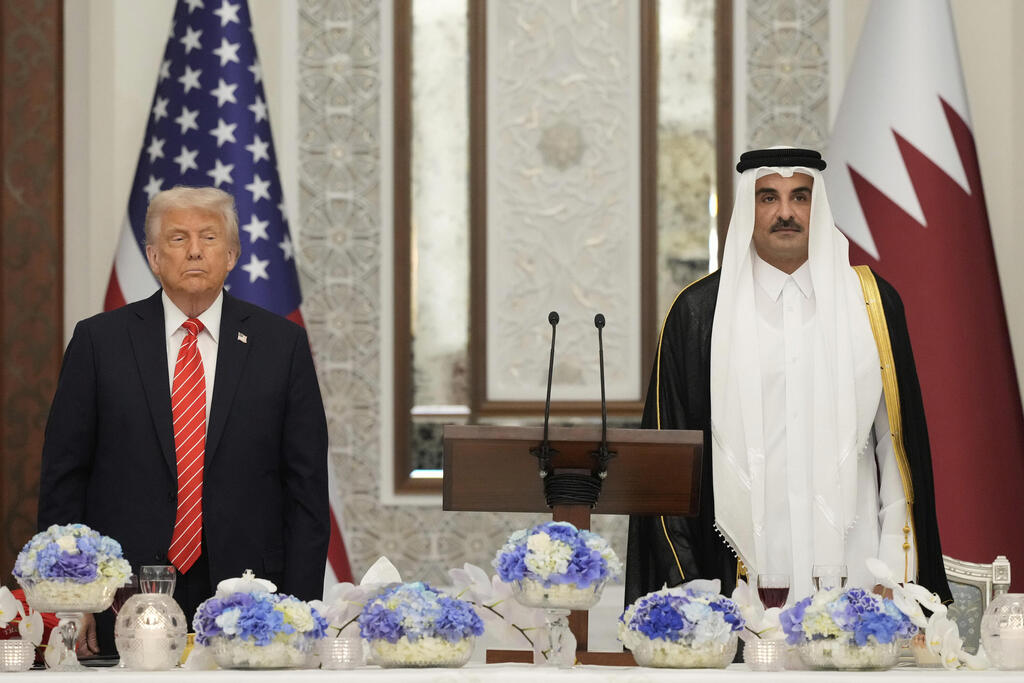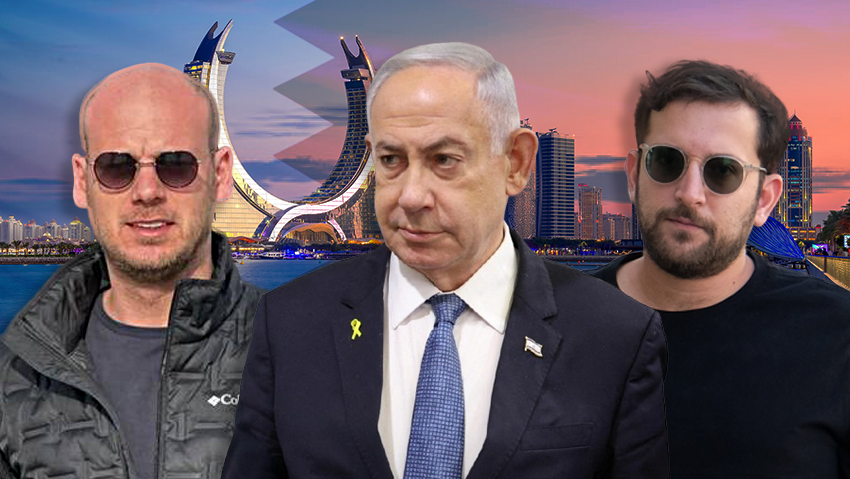Getting your Trinity Audio player ready...
Qatar’s influence has extended into academia, real estate, sports, and even U.S. media—particularly Fox News—mirroring its controversial tactics seen in Israel’s "Qatar-Gate" affair. Documents submitted to the U.S. Department of Justice under the Foreign Agents Registration Act (FARA) reveal Qatar’s deep penetration into the American media landscape, particularly targeting conservative outlets.
During the year leading up to the U.S. presidential election, only 10% of lobbying efforts by agents working on behalf of Qatar were directed at conservative-leaning media. However, after Donald Trump’s victory, this focus shifted dramatically: over half of their outreach was aimed at outlets like Fox News, the New York Post, and the Daily Mail. Qatar’s goal was clear—to promote favorable narratives about the emirate, known for its complex ties with Hamas and Iran, and position itself as a reliable partner in the eyes of Trump and his administration.
This strategy appears to have yielded results. According to an investigation by the Washington Examiner, numerous instances were documented where lobbying efforts targeting American journalists were promptly followed by the publication of highly favorable articles about Qatar—sometimes within just days. One of the most notable successes was an interview Tucker Carlson conducted with Qatar’s Prime Minister, Mohammed bin Abdulrahman bin Jassim Al Thani, which garnered over six million views within hours of its release.
This interview was a significant achievement for Qatar’s public relations efforts, coordinated by the American consulting firm Lumen8 Advisors. According to a contract filed under FARA, the firm receives a fixed monthly payment of $180,000 from the Qatari Embassy in Washington for services including strategic communications consulting and media training. The contract also mandates that the firm dedicate 13 days a month to working directly with Qatar, typically in Doha, and be available on demand. Notably, the agreement specifies that the firm's president, Rebecca Diaz-Bonilla, must travel in business or first class on Qatar Airways. Additionally, the contract forbids the firm from working with other governments in the Middle East or North Africa without Qatar’s approval.
Coordinated media outreach
Tucker Carlson was not the only target. On February 20, 2025, a Fox News employee received a text message from a representative of GRV Strategies, another lobbying firm working on behalf of Qatar, suggesting a “foreign policy story idea.” Just three days later, Fox News published an article titled “Qatar Stands Firm Against Iranian Pressure,” citing an anonymous “source familiar with Qatar’s plans.”
Trump welcomed in Qatar
(Video: Reuters)
In another instance, GRV representatives approached a New York Post employee on December 4, 2024. Three days later, the newspaper published an extensive article about Qatar’s central role in hostage negotiations. The documents reveal a recurring pattern: outreach to journalists, pitching a story idea, and the subsequent publication of an article within three days. In many cases, the language in the articles closely mirrors the original suggestions provided by the lobbying firms. Examples involving Fox News and the New York Post stand out for their promotional tone, suggesting coordinated messaging rather than independent journalism.
Get the Ynetnews app on your smartphone: Google Play: https://bit.ly/4eJ37pE | Apple App Store: https://bit.ly/3ZL7iNv
GRV Strategies is led by Garrett Ventry, a former Republican advisor with deep connections to the American right. Ventry, who previously held senior roles in Congress and conservative media, formally transitioned to lobbying for Qatar to avoid overt conflicts of interest. According to filings with the Justice Department, his firm currently receives $80,000 per month from the Qatari government.
Trump’s shift on Qatar
This media campaign aligns with a noticeable shift in President Trump’s stance on Qatar. While he previously accused the country of supporting terrorism, his tone has softened significantly in recent months. Trump now praises Qatar for its contributions to U.S. strategic goals. His favorable remarks intensified after his recent visit to the region, during which Qatar gifted him a $400 million luxury jet. The aircraft is intended to be transferred to Trump’s presidential library after he leaves office. Critics have called this gift a major ethical concern, but Trump’s administration insists that as long as the jet is classified as government property, it does not constitute a violation.
Ethical concerns and expanding influence
The jet is just one example of Qatar’s growing influence, which has raised alarm among governance and transparency experts. Alongside its involvement in American academia and large-scale real estate projects with the Trump family, Qatar’s increasing ability to shape media narratives is now coming to light. Critics warn that the gap between Qatar’s interests and the values of American democracy is widening, but its media strategy is already proving effective—well-funded, highly coordinated, and deeply embedded in U.S. public discourse.
The overarching goal of Qatar’s public relations campaign is to mitigate Republican criticism of its ties to Hamas and Iran. Much of its media outreach has focused on carefully crafted messages portraying Qatar as a responsible global power willing to cooperate with the West, often citing anonymous “sources familiar with Qatar’s plans.” This approach closely resembles Qatar’s tactics in Israeli media, as revealed in the “Qatar-Gate” scandal.
Investigations in Israel
In February, Israeli Attorney General Gali Baharav-Miara announced a criminal investigation into alleged undisclosed dealings between Prime Minister Benjamin Netanyahu’s office and the Qatari government. The investigation, led by the Shin Bet and the police’s Lahav 433 unit, focuses on serious allegations of contact with a foreign agent, bribery, fraud, breach of trust, and money laundering.
Among the suspects are Netanyahu’s communications advisor Yonatan Urich and his former security spokesperson Eli Feldstein. Both were arrested and questioned on suspicion of maintaining direct contact with Qatari representatives via American lobbyist Jay Footlik. Investigators allege that Netanyahu’s aides promoted pro-Qatar media narratives while concealing the identity of the financiers and the extent of their involvement. Similar to the findings in the U.S., the Israeli investigation has uncovered a consistent pattern: funding narratives, inserting favorable messaging, and quietly deploying unofficial agents to influence public discourse in a Western democracy.







